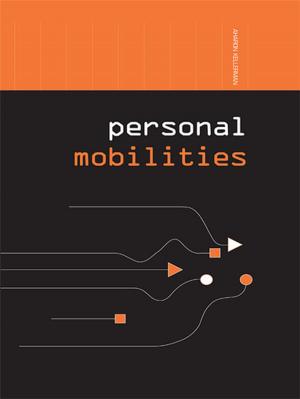The Psychology of Lifestyle
Promoting Healthy Behaviour
Nonfiction, Health & Well Being, Medical, Reference, Public Health, Nursing| Author: | Kathryn Thirlaway, Dominic Upton | ISBN: | 9781135267278 |
| Publisher: | Taylor and Francis | Publication: | May 7, 2009 |
| Imprint: | Routledge | Language: | English |
| Author: | Kathryn Thirlaway, Dominic Upton |
| ISBN: | 9781135267278 |
| Publisher: | Taylor and Francis |
| Publication: | May 7, 2009 |
| Imprint: | Routledge |
| Language: | English |
Improving lifestyles is thought to be one of the most effective means of reducing mortality and morbidity in the developed world. However, despite decades of health promotion, there has been no significant difference to lifestyles and instead there are rising levels of inactivity and obesity.
The Psychology of Lifestyle addresses the role psychology can play in reversing the trend of deleterious lifestyle choices. It considers the common characteristics of lifestyle behaviours and reflects on how we can inform and improve interventions to promote healthy lifestyles. Health promotion has taught people what a healthy lifestyle is – now we need to enable people to live that life. The chapters cover key lifestyle behaviours that impact on health –smoking, eating, physical activity, drinking, sex and drug use – as well as combinations of behaviours. Each chapter contains interventions that have been developed to influence and promote lifestyle change among patients and clients.
This unique book will enable readers to develop a clear theoretical and practical grasp of the psychological principles involved in all aspects of lifestyle change. It is an invaluable resource for students and professionals committed to health promotion within all health-related disciplines.
Improving lifestyles is thought to be one of the most effective means of reducing mortality and morbidity in the developed world. However, despite decades of health promotion, there has been no significant difference to lifestyles and instead there are rising levels of inactivity and obesity.
The Psychology of Lifestyle addresses the role psychology can play in reversing the trend of deleterious lifestyle choices. It considers the common characteristics of lifestyle behaviours and reflects on how we can inform and improve interventions to promote healthy lifestyles. Health promotion has taught people what a healthy lifestyle is – now we need to enable people to live that life. The chapters cover key lifestyle behaviours that impact on health –smoking, eating, physical activity, drinking, sex and drug use – as well as combinations of behaviours. Each chapter contains interventions that have been developed to influence and promote lifestyle change among patients and clients.
This unique book will enable readers to develop a clear theoretical and practical grasp of the psychological principles involved in all aspects of lifestyle change. It is an invaluable resource for students and professionals committed to health promotion within all health-related disciplines.















